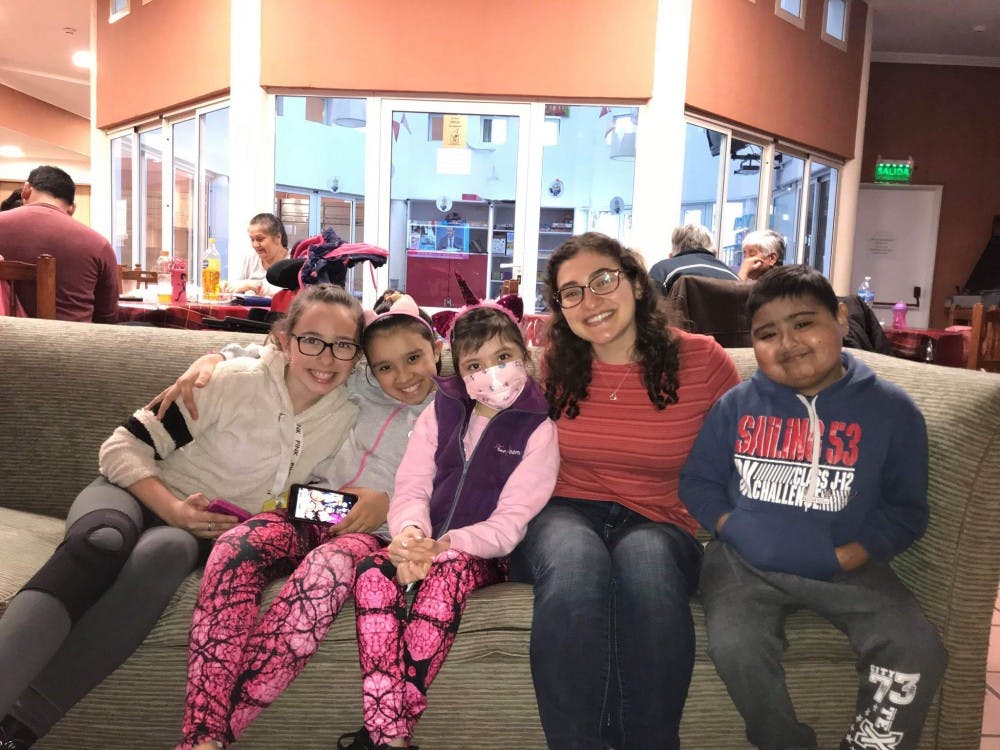Some of the University’s most well-known international opportunities are trying to better immerse Princeton students in local cultures during their time abroad.
For the summer of 2019, the Office of International Programs has reformed its International Internship Program (IIP) offerings by shrinking “cohort” sizes and sending students to more developing countries, all in an attempt to increase cultural integration.
Every fall, Luisa Duarte-Silva, the Director of IIP, re-evaluates the program’s offered locations and workplaces based on participants’ evaluations.
“We create new internships based on the thoughts of students and also based on keeping a balance of geographic locations,” she said.
According to Duarte-Silva, over the past years, students have called for one concrete change above all else.
“There has been a lot of interest from students to have more opportunities in developing countries,” she said.
On Nov. 1, applications for IIP opened, this time with brand new opportunities for students to join cohorts headed to Vietnam and Rwanda.
These internships are varied in profession, ranging from the Gashora Girls School of Science and Technology, to a cycling federation committed to HIV testing, to an agricultural business assessment firm — all in Rwanda alone.

“Last year, as a trial, we did cohorts in Cambodia and Uganda,” Duarte-Silva said. “Because they were so successful, we added more this year and reproduced the model in Vietnam and Rwanda, while also reinforcing it in the previous two.”
All 11 students who interned in Uganda in the summer of 2018 rated their overall experiences as either “very” or “extremely rewarding.”
Patrycja Pajdak ’21, a prospective Woodrow Wilson School major, called her internship in Cambodia last summer the “most rewarding experience” she had ever had.
She lived in the host’s guest house with two other Princeton students in very close proximity to their volunteer site.

According to student reviews, being part of a cohort of other Princeton students helps ease the transition into a new culture, especially when a language barrier is involved.
To Duarte-Silva, the perfect size of a cohort is eight to 10 students, with a maximum of two students at any given workplace.
“I want the cohorts small enough so they don’t turn into recreating the Orange Bubble abroad, but also big enough so there are enough students in the area for them to support each other and meet on weekends,” she said.
In the same spirit of diminishing the Orange Bubble, the 17 internship spots previously in Buenos Aires have been split into three cohorts, and all students in Argentina, Uruguay, and Vietnam will now be residing in homestays, according to Duarte-Silva.
Previous IIP participants expressed a range of reactions to the news of smaller cohorts.
Madelyn Broome ’19, who studies astrophysics, gave an enthusiastic endorsement of doing everything possible to eliminate the bubble abroad. While interning in Santiago, Chile, she shared an apartment with a local woman.
“This is really a chance to live on your own,” she said of the program.
Christopher Ye ’21, a prospective mathematics concentrator, was less excited about the prospect of fewer Princeton students in Buenos Aires.
“I loved that there were so many of us. I had a roommate who was a Princeton student, and we became really good friends. My internship was mainly coding and didn’t involve much social interaction. If not for seeing Princeton students, I probably wouldn’t have talked to anyone during the week,” he said.
Despite his relative social confinement to other English-speaking Princetonians, he found that his Spanish still vastly improved over the course of the summer.
Most past participants agreed that having fellow Princeton students in a region can be extremely beneficial.
“Logistically, it was helpful to have other students there as we figured out basic aspects of being abroad, such as getting our phones to work and navigating public transportation,” said Ariella Cohen ’19, a neuroscience concentrator who had an internship in Buenos Aires in 2018.
Jennie Yang ’20, who interned in Zimbabwe with two other Princeton students, also commented that it was a relief to have travel buddies.
Safety-wise, Duarte-Silva claimed that there is no difference in the frequency of incidents between interns in developed and developing countries.
“The frequency of incidents really depends on the preparation of the student. Sometimes, it’s actually more likely to have dangerous incidents in Europe because students are more nonchalant about safety concerns going in than they would be for a developing country,” she explained.








